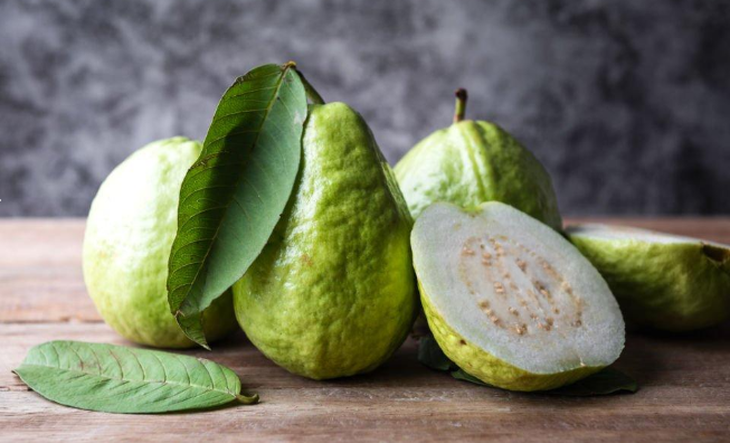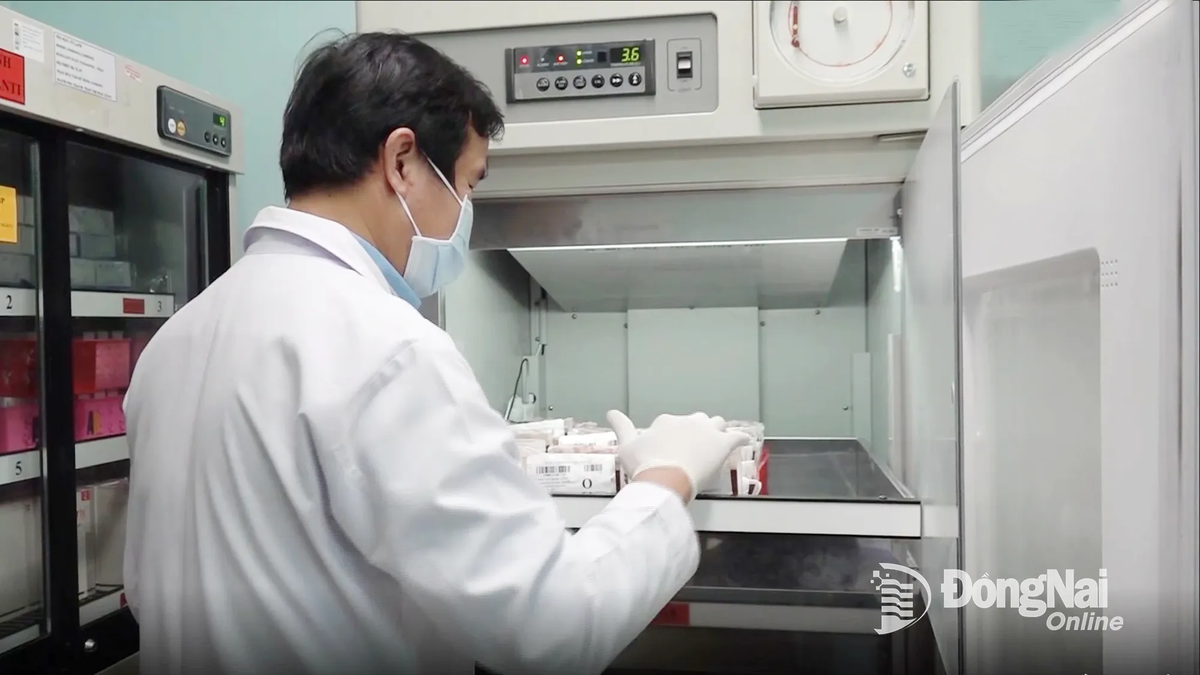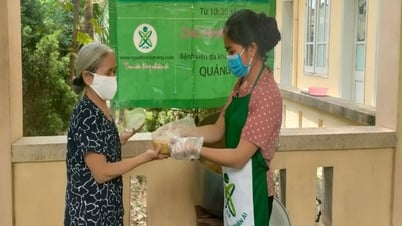
Guava is a fruit that provides much more vitamin C than lemons, oranges... - Illustration photo
This vitamin also helps prevent cancer, reduces the risk of heart disease, slows down the aging process and aids in the absorption of iron and calcium as well as boosting the immune system and reducing stress.
Unlike other nutrients, the human body cannot produce vitamin C on its own. Therefore, the main source of this nutrient is from the food we consume every day. Therefore, vitamin C deficiency is a common occurrence and can cause symptoms such as hair loss, brittle nails, bruising, swollen gums, dry skin, fatigue, body aches, cardiovascular disease, infections, nosebleeds, and mood swings.
To prevent these symptoms, try to incorporate a variety of vitamin C (in moderation) into your daily diet. This will help prevent the occurrence of high blood pressure, gallbladder disease, stroke, and some cancers.
Superfoods rich in vitamin C include:
1. Guava
In terms of nutritional content, guava is most notably rich in vitamin C. Nutritional studies show that every 100g of fresh guava contains more than 200mg of vitamin C, the amount of vitamin C guava provides is 1.5 times more than that of oranges.
Vitamin C not only supports wound healing but also enhances iron absorption and helps increase resistance.
In addition, guava also contains other micronutrients such as vitamin B6, minerals such as iron, zinc, calcium, magnesium... 100g of guava provides 33 Kcal, 0.6g of protein, 7.7g of glucid. Guava contains rich fiber, helping to improve digestion.
2. Bell peppers
As one of the best sources of vitamin C, bell peppers can help your body reach its required vitamin C levels. Yellow bell peppers are usually sweet and rich in vitamin C, which helps boost your body's immune system. Red bell peppers are also a good source of vitamin C and have a direct impact on your immunity levels.
3. Parsley
Packed with vitamin C, this herb is great for your health. Containing 10mg of vitamin C in just two tablespoons of parsley, this herb helps increase iron levels in the body as well as support the body's immune system.
4. Kiwi
Experts often recommend eating this fruit for people who are deficient in vitamin C. Having this fruit in your daily diet not only provides enough vitamins, but also helps strengthen the immune system and helps fight infections.
5. Broccoli
This green vegetable is considered a 5-star food, because it contains essential nutrients, minerals and vitamins, especially vitamin C. Just 100g of broccoli is determined to contain up to 89.2mg of vitamin C. Therefore, eating just 2 to 3 broccoli stalks a day will help get rid of vitamin C deficiency.
6. Fabric
This is one of the best sources of vitamin C, eating this fruit can contribute to the body's vitamin C levels.
Consuming lychee helps improve collagen synthesis in the skin as well as strengthen blood vessel health. 100g of lychee contains 71.5mg of vitamin C, this fruit is also rich in potassium and beneficial fats.
7. Papaya
Eating one cup of papaya contains 87 mg of vitamin C, making it a very good source of vitamin C. Fresh papaya is a good source of vitamin C, as well as vitamin A, fiber, calcium, potassium, and omega-3s.
8. Strawberries
Recognized as a superfruit for providing vitamin C, strawberries contain high amounts of vitamin C, while also providing protein and fiber.
9. Orange
One orange can provide nearly 10% of the daily value of vitamin C, which boosts the immune system and helps the body produce collagen.
One study found that citrus juices, especially orange juice, support immune function. Citrus juices have also been found to reduce inflammation, which may help prevent disease.
10. Chili
Each chili pepper contains at least 56 mg of vitamin C, which can help prevent vitamin C deficiency. As an added bonus, consuming chili peppers also helps reduce infections.
11. Lemon
Lemons and limes are both citrus fruits, rich in vitamin C. 100g of limes contain 53mg of vitamin C and 100g of regular limes contain 29.1mg of vitamin C. Limes were once consumed to prevent scurvy (a disease caused by vitamin C deficiency).
12. Cauliflower
This vegetable is rich in vitamin C and is often consumed to prevent vitamin C deficiency in the body. 1 cup of cauliflower contains 20 mg of vitamin C.
Some other foods rich in vitamin C are tomatoes, mint leaves...
Source: https://tuoitre.vn/thuc-pham-giau-vitamin-c-ngac-nhien-khi-chanh-khong-phai-la-dau-bang-20250730104515196.htm





































































































Comment (0)